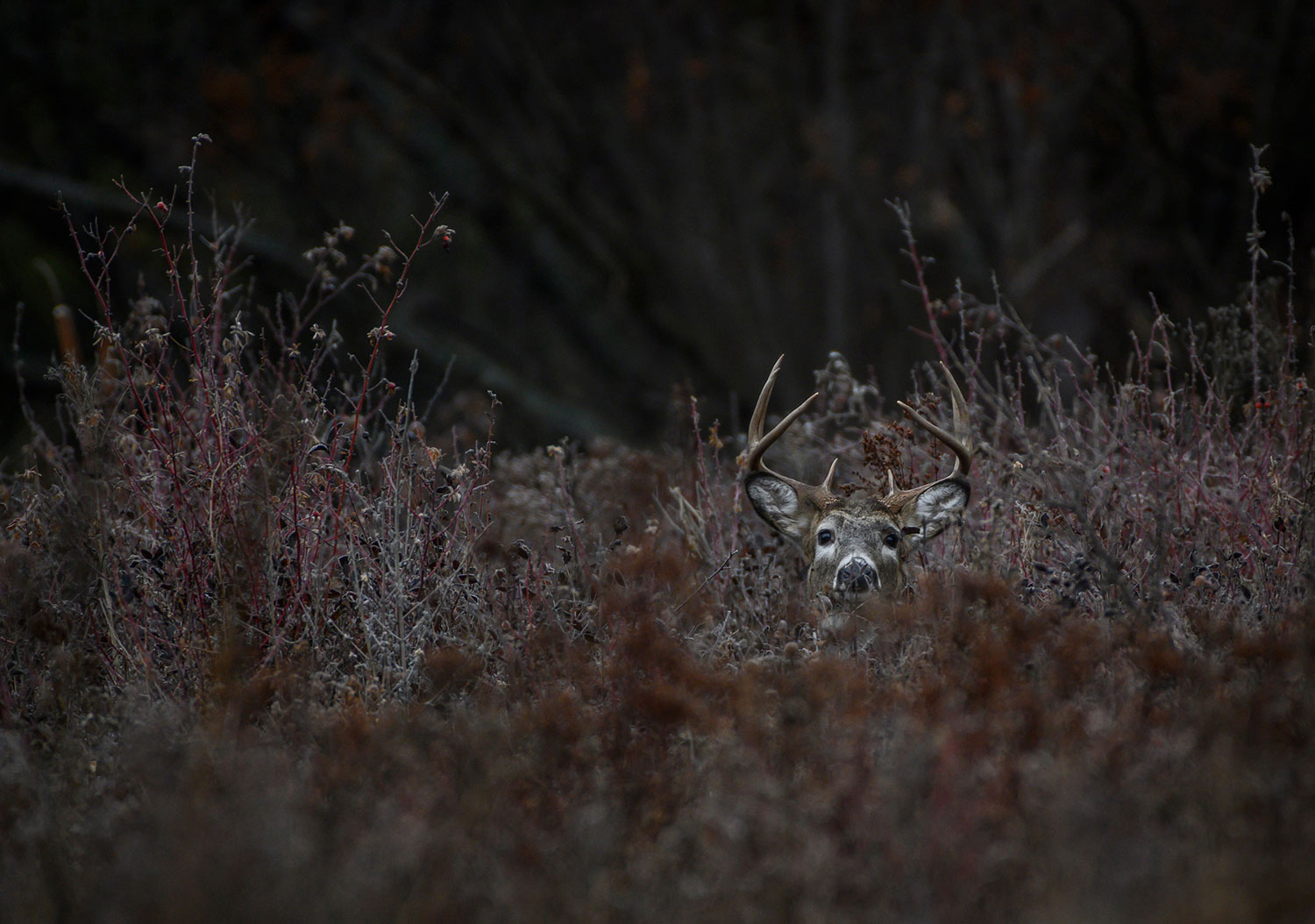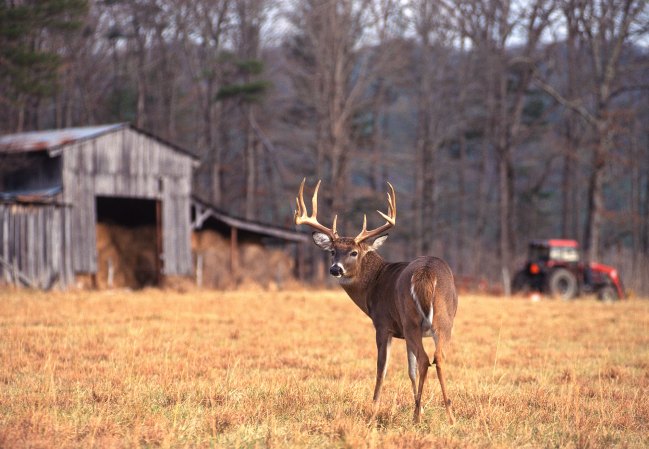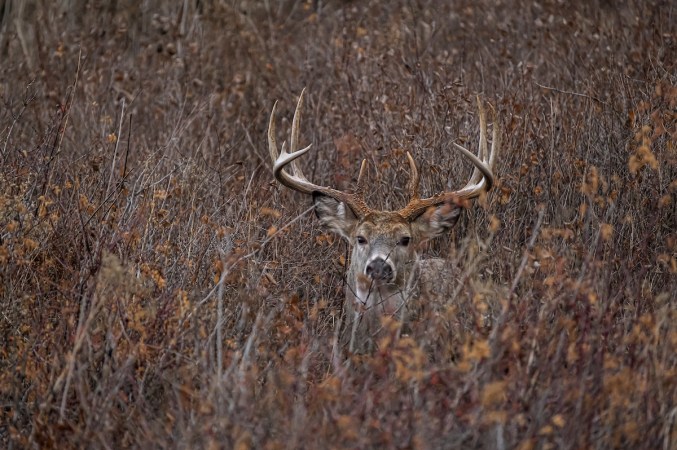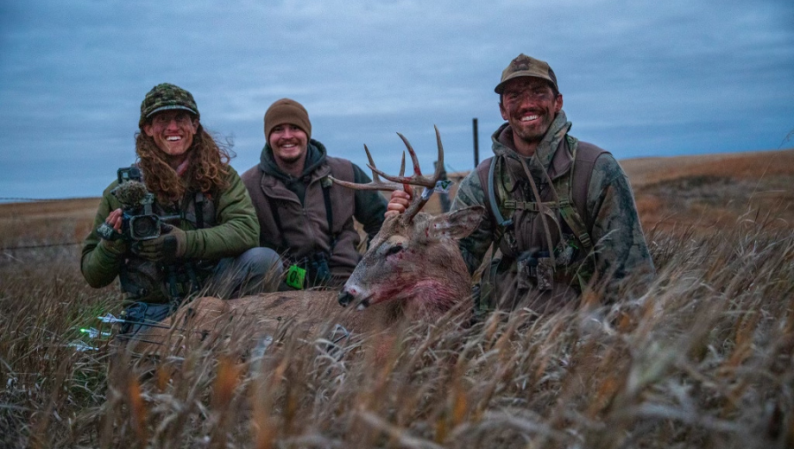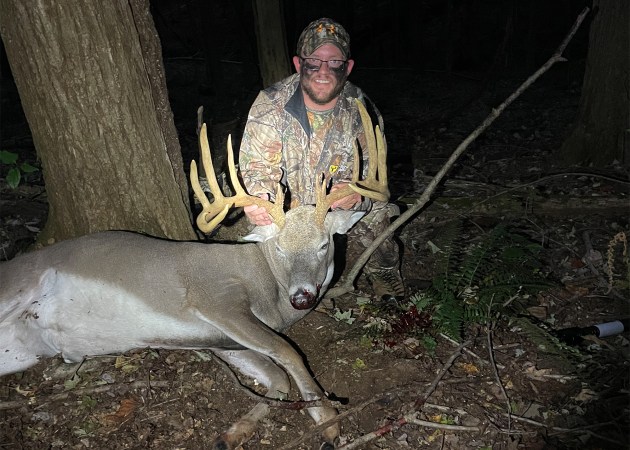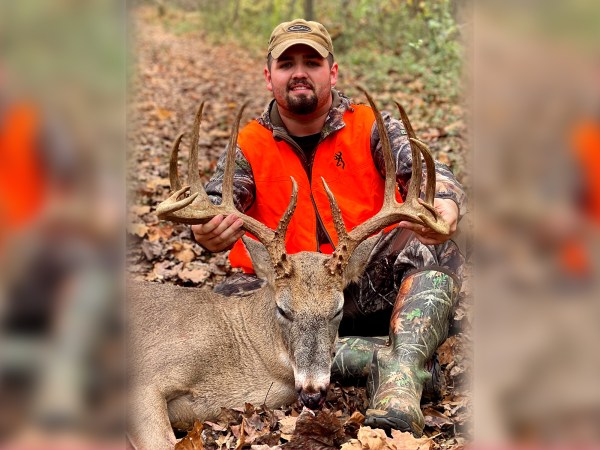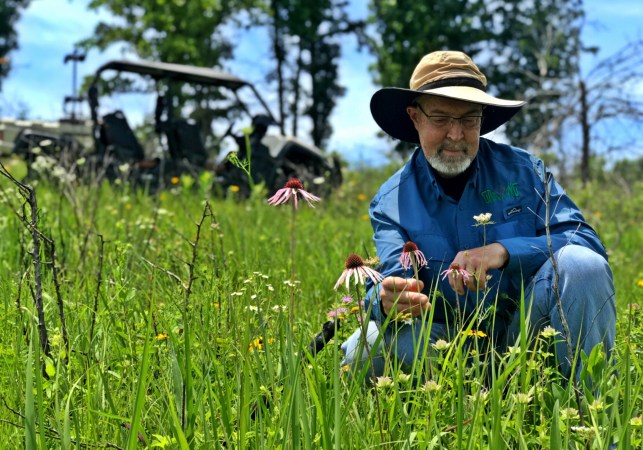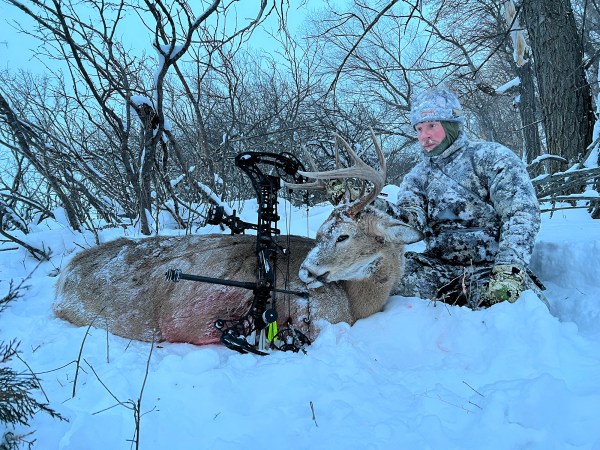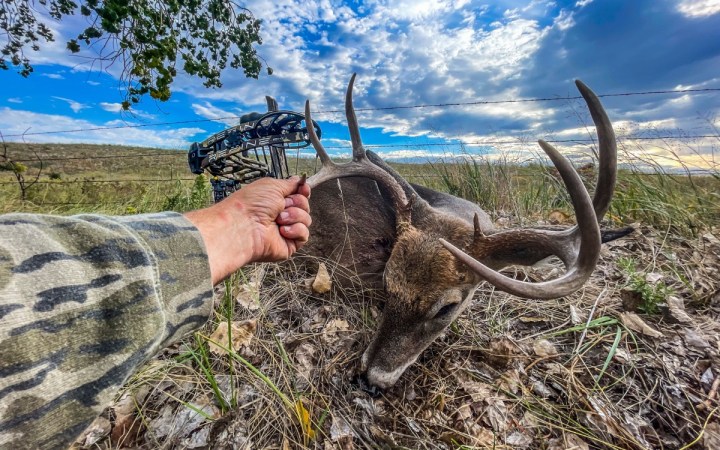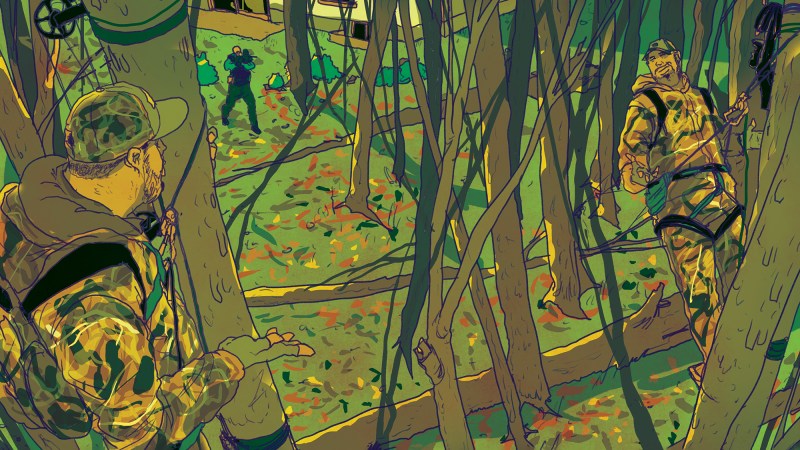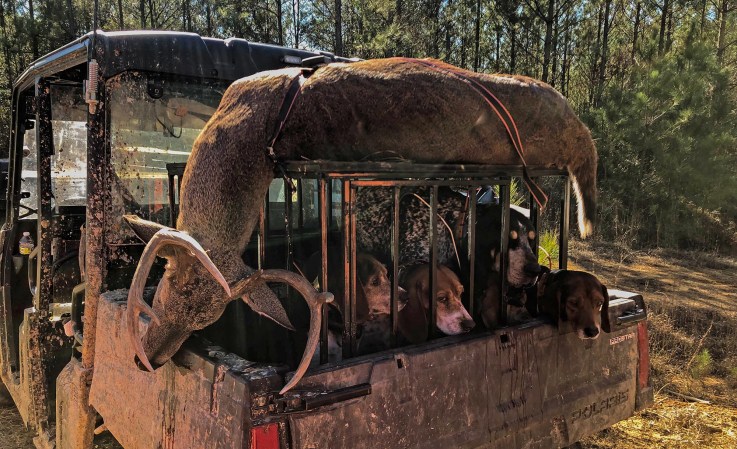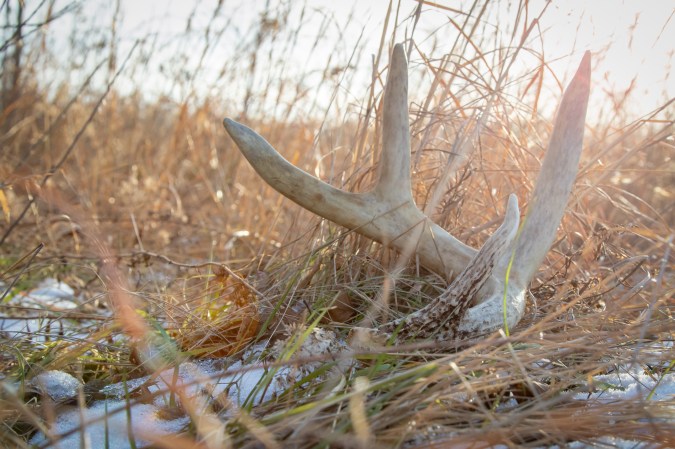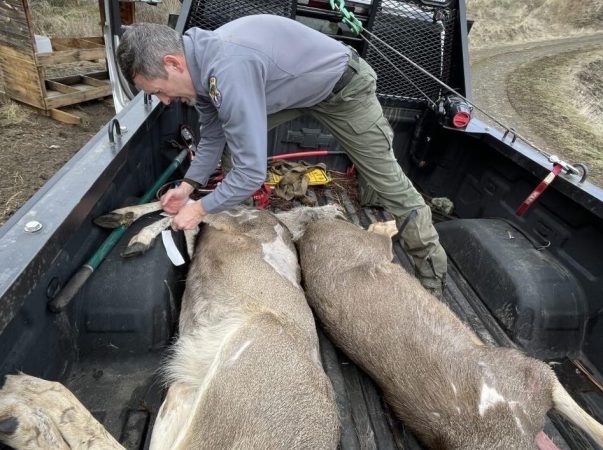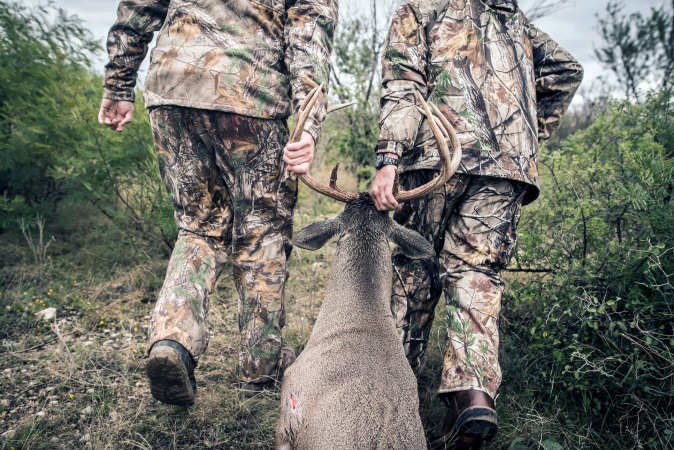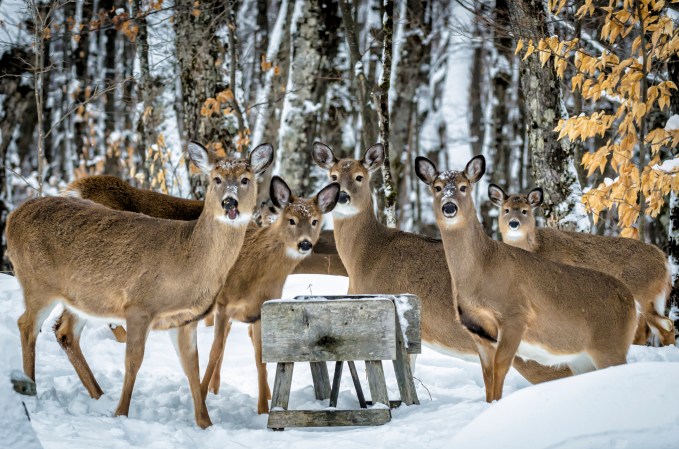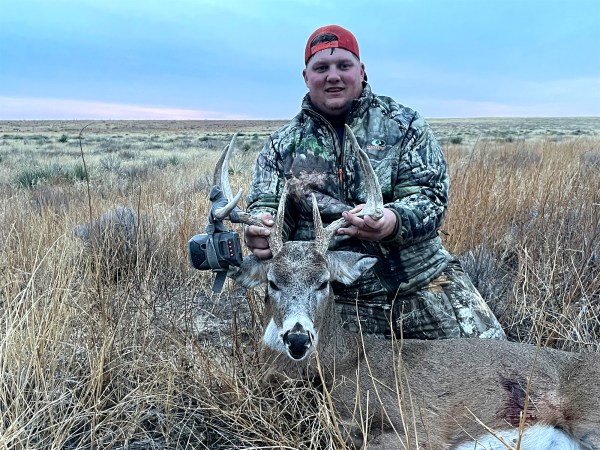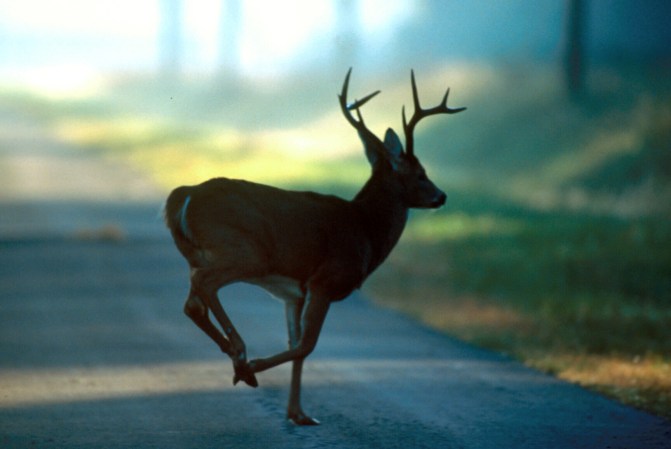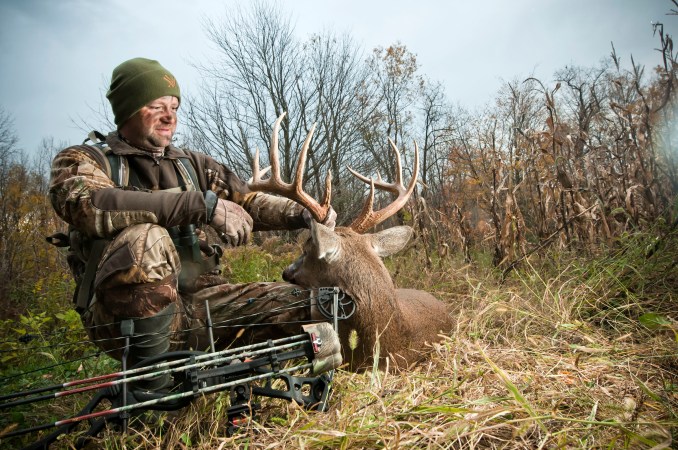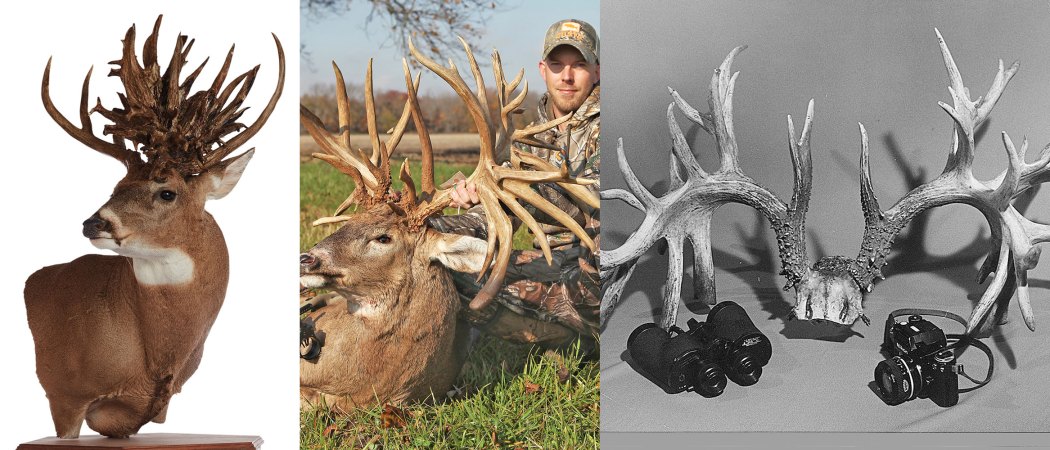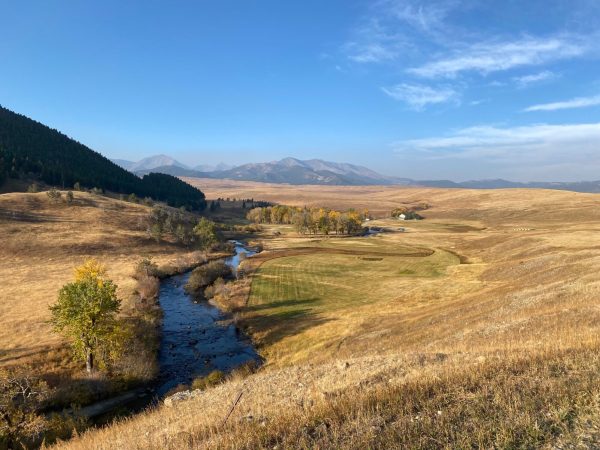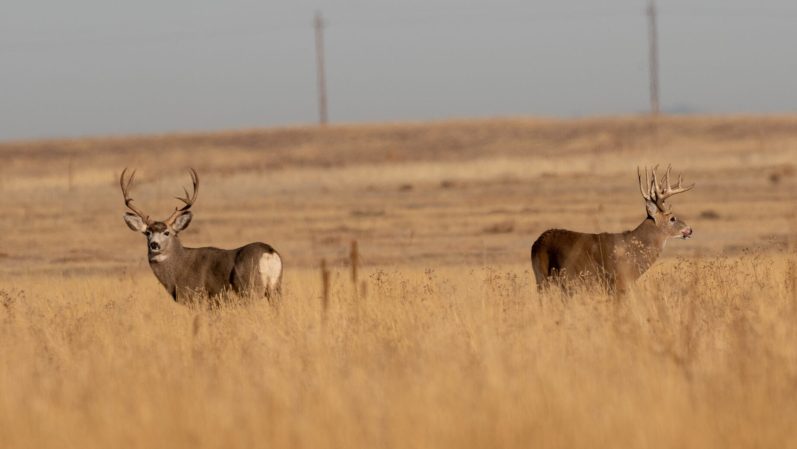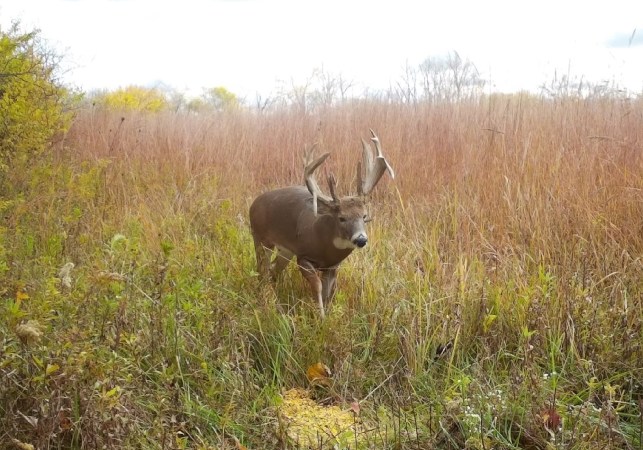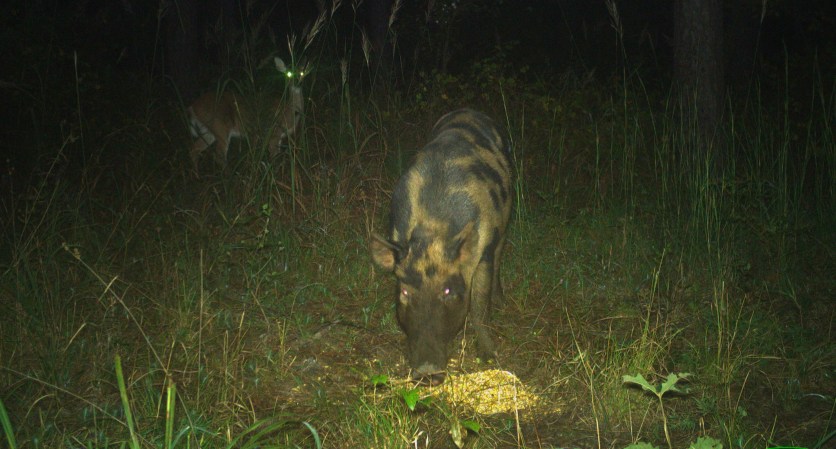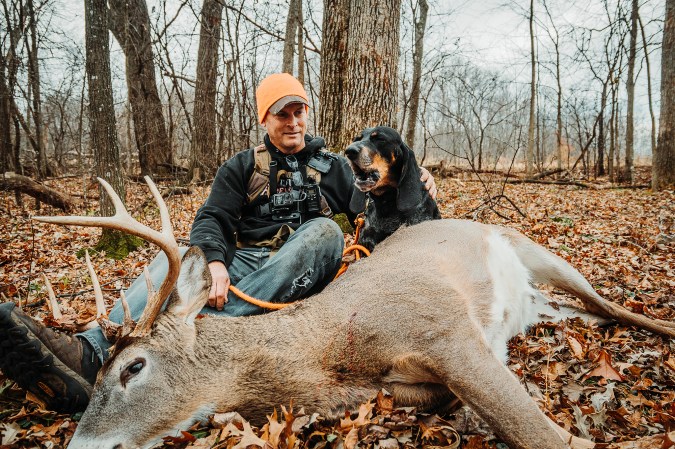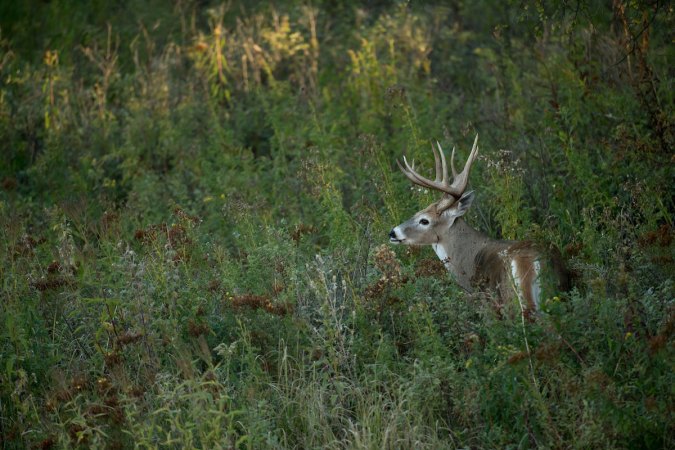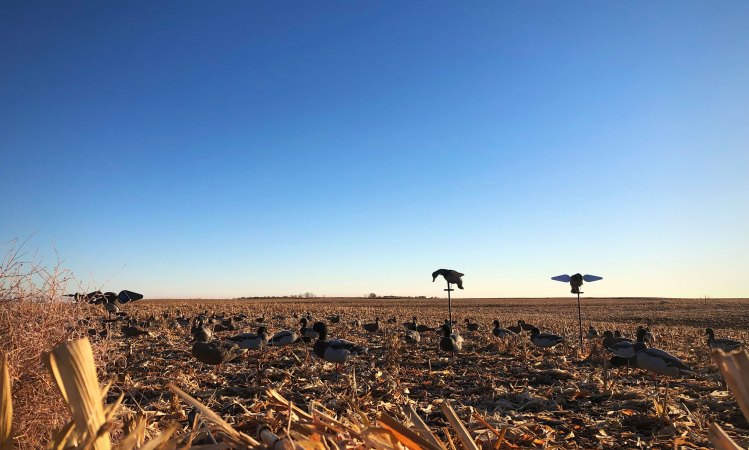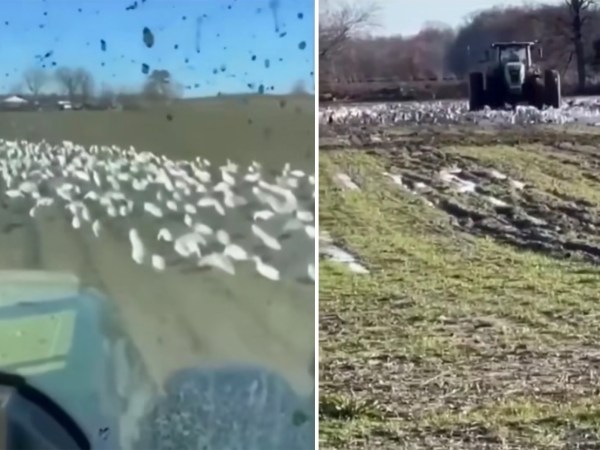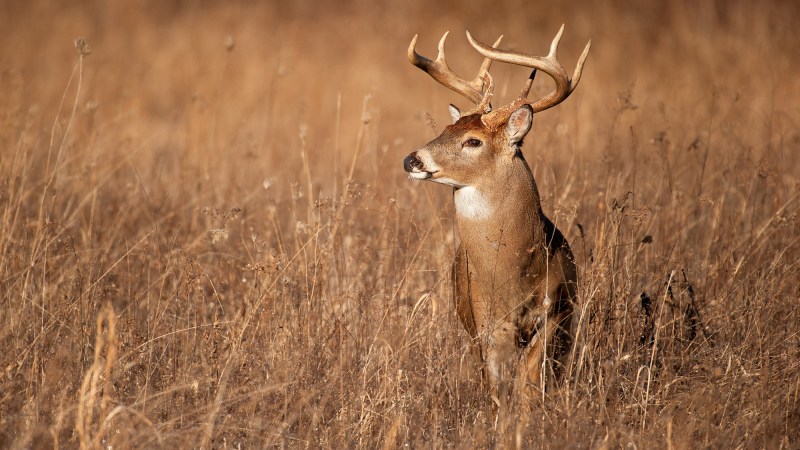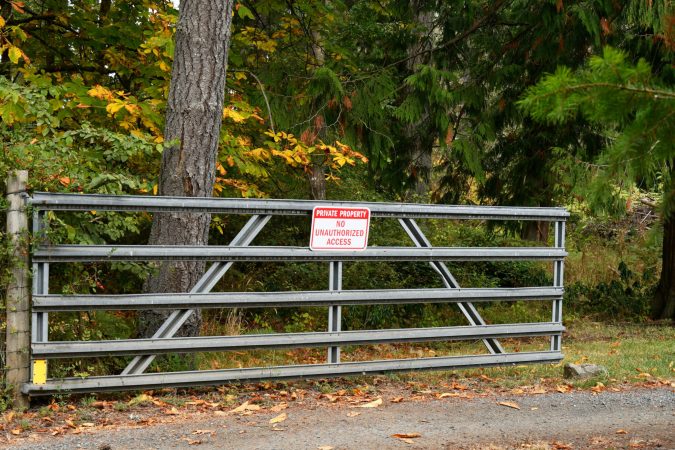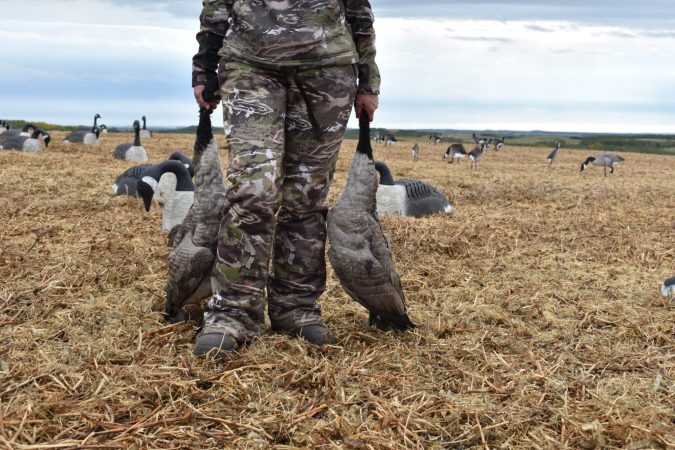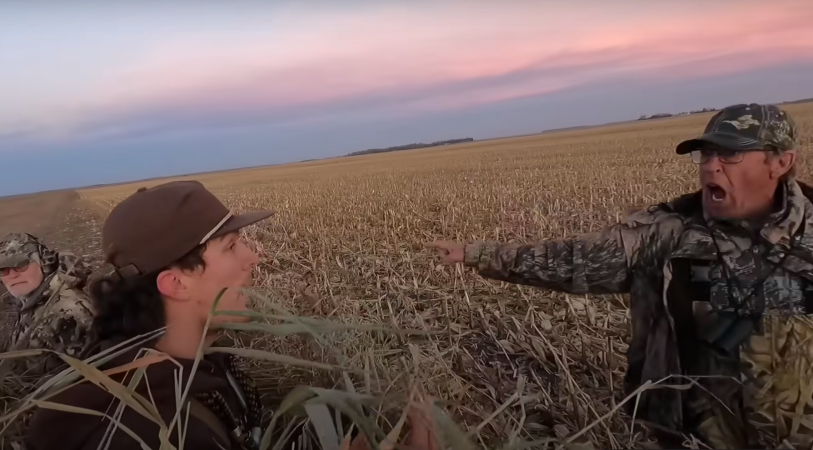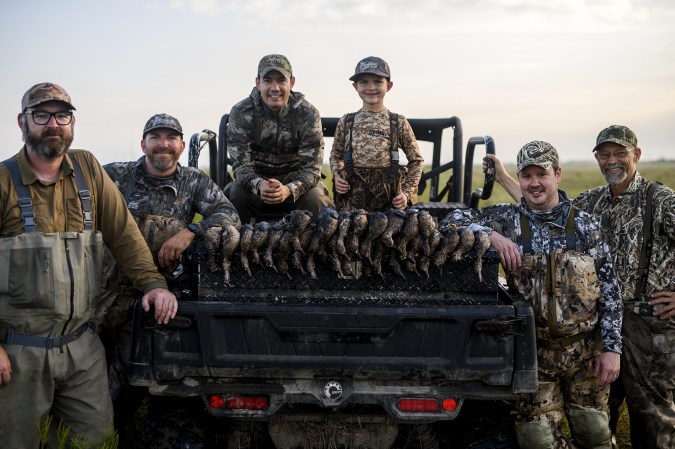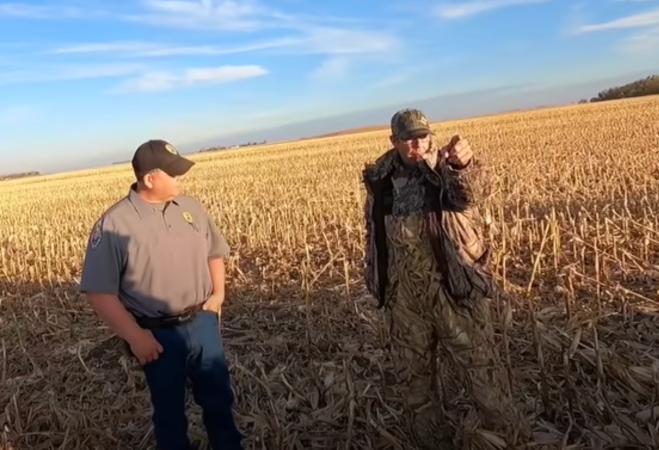A recent report from the National Deer Association found that the vast majority of deer killed by hunters in the Midwest, Northeast, and South are tagged on private land. If you’re a deer hunter in those regions, you probably already know that private land hunting is a big deal, but still, the numbers might surprise you.
A lot of public-land hunters will read that report with no small amount of rage. It might feel like you’re getting priced out of hunting altogether. But getting hunting access to private land doesn’t have to be a rich man’s game and you don’t need hundreds of acres to have a good deer season. In pockets all around whitetail country, there are opportunities to find an affordable deer hunting lease. These opportunities are rare, but they do exist.
A few years ago I was driving around looking for permission to hunt early-season geese. I stopped by a dairy farmer’s place and asked about hunting geese in his field. He politely declined because there was a waterfowl outfitter who was going to be hunting the field. But then he asked: “You don’t do any deer hunting, do ya?”
“As a matter of fact, I do,” I responded. A buddy and I went on to lease his farm for bowhunting and ended up with an awesome spot close to home. As the seasons went by, we continued to build our relationship with the landowner and that’s unlocked some incredible hunting opportunities for us. Here’s how to find a deer hunting lease of your own.
Get a Lay of the Land
A quick reality check: This strategy won’t work everywhere. In counties and regions that are known for trophy whitetail deer hunting, finding a small affordable lease is unlikely. In these places you’ll probably be competing with outfitters and out-of-state hunters for ground. So unless you have family or friend connections in big deer country, you’re probably not going to find a steal here. You’re better off targeting regions that have lots of deer and aren’t known as coveted trophy zones. Zero in on regions that have a mix of different sized properties with plenty of smaller farms mixed in.
READ NEXT: How to Scout for Deer
Understand Laws, Regs, and Rates
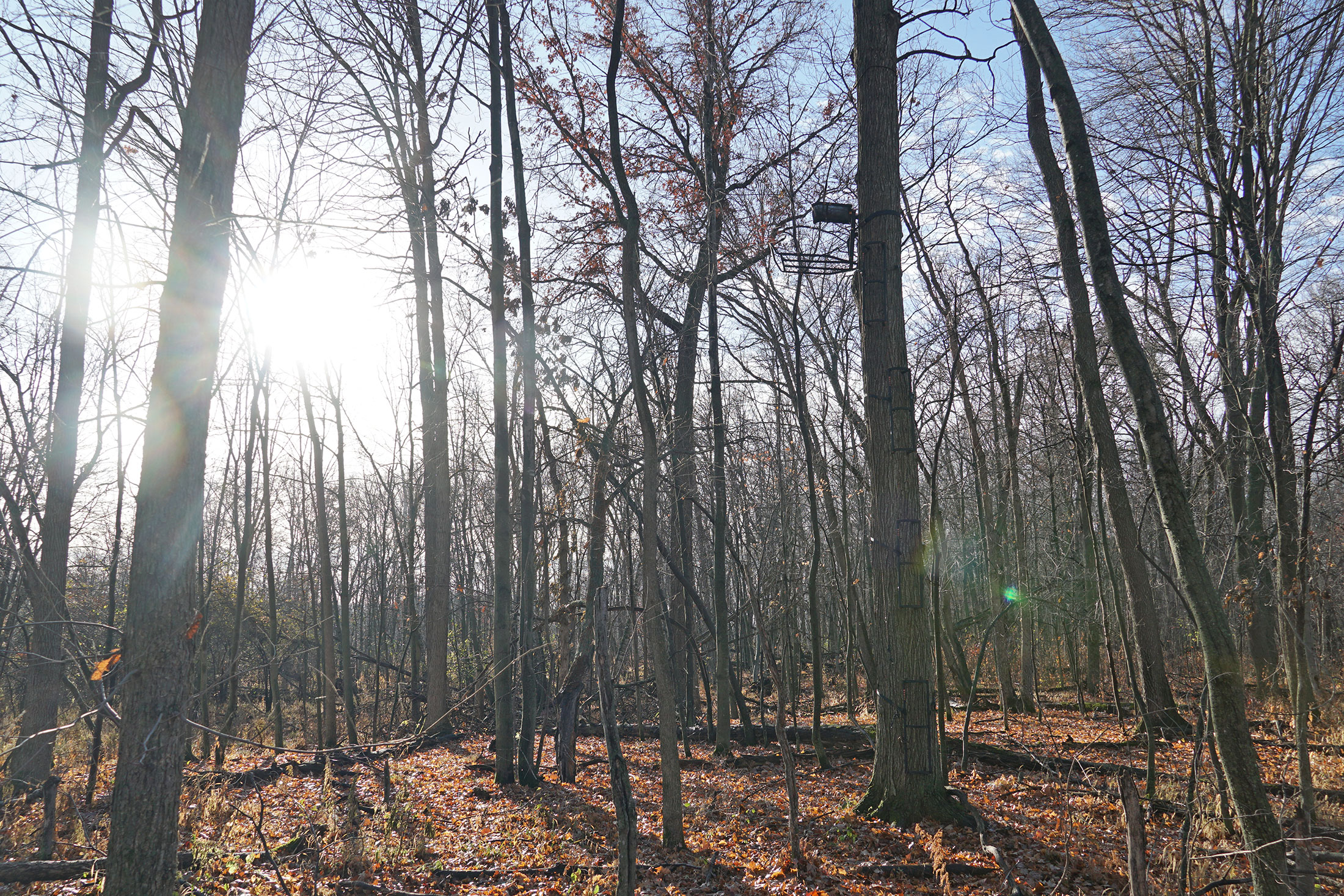
First, do a little research on leasing laws and regulations in your state. Most leases aren’t actually leases, they’re licenses to use a private property for a specific purpose. In the West, arrangements similar to this are commonly called “trespass fees.” Also, dig into what your state’s liability laws are and have a general idea of what’s expected of the lessee and landowner. Most small farmers and landowners do not want to discuss all this legalese B.S. But, you should be ready in case they do.
Next, do some research on lease rates (which you’ll want to breakdown to a cost-per-acre figure). You can do this by scrolling land leasing websites and checking out properties in your area. Most of the properties on these websites will be large and expensive. Don’t get discouraged by this. You’re not trying to actually lease one of the properties listed on these sites. You’re just trying to find a benchmark dollar-per-acre number (though if you find a cherry property to lease on one of these sites, great!). In my area of Minnesota/Wisconsin, land leases on these websites seem to be going for $10 to $20 per acre. That’s spendy, and you should try to shoot lower than that. Decide on the max dollar amount you want to spend and try to match acreage to that. If you can’t come up with enough scratch on your own, plan to split the cost with a trusted hunting buddy.
Think Small
Now that you’ve got an idea of how much you want to spend and the property size you might be able to rent, it’s time to pull up a digital mapping app like Huntstand or onX start identifying likely properties.
Look for smaller properties that are linked to larger properties through connecting cover. A 40-acre parcel next to a few hundred acres of ideal habitat can make for a killer deer property. Next look for ownership details, which the app shows. You want to prioritize places where the owners live on the property. First off, these folks are easier to get in contact with. Secondly, wooded properties with an owner who doesn’t live on site are probably owned specifically as hunting ground (so don’t waste time trying to get permission there). You’re looking specifically for smaller farms, because farmers with small operations usually have a positive view of hunting. Plus, they’re more likely to be open to making a few hundred bucks and possibly getting some venison and deer control out of the deal.
Ownership details are important. Often times you’ll find families that own a bunch of parcels scattered throughout an area. These are worth checking in on, because even if that specific farmer doesn’t allow hunting, his brother might.
The absolute dream scenario is a small property next to a large property that doesn’t allow hunting (like a county park or university land). The big property acts as a sanctuary for deer that you’ll be able to hunt on the adjoining small property.
Using your digital map, mark all the properties that meet this criteria. You’re going to want to identify at least 10 properties within reasonable driving distance of your house (because it’s unlikely you’re going to strike gold on the first one). Then grab your truck keys and checkbook and hit the road.
Start Door-Knocking
Now it’s time to visit all those properties you marked on your map and start knocking on doors. Showing up in person is much more effective than cold calling or leaving letters. The main rule now is: BE POLITE. Do not go asking for permission during dinner time or Sunday morning when families might be getting ready for church. When you knock on the door or ring the doorbell, give the landowner some space.
Be friendly, but also be upfront (the farmer will be wondering, ‘what the heck is this guy up to?’). So right away, let him know that you’re curious about getting permission to hunt his property and you’re willing to pay. Also, don’t try to haggle the price or start trying to work in extras (for example bringing out a group of friends to hunt with you). You need to show the landowner that you’re a straightforward, trustworthy person. And you have about 30 seconds to communicate that effectively. The first impression matters.
READ NEXT: Ohio Hunter Tags Stud Buck from Small Property After Getting Permission from Landowner
Play the Long Game
The deer hunters with the best access either buy it outright, or they spend years cultivating relationships and connections in an area. So if you’re not financially able to buy land, you’re going to have to attain access through it with relationships. Since you’re looking to do this affordably, the money you’re paying the landowner ultimately isn’t going to be make-or-break for them. At the end of the day, they’re letting you hunt because they like you and because they like that there’s a little financial incentive in it for them, too. Over the years, you’ll probably find good properties, loose them, and find new ones. That’s all part of the game.
Remember that oftentimes, permission to hunt turkeys or even coyotes can turn into opportunities to deer hunt in the future. Act accordingly.
Go Bow or Crossbow Only
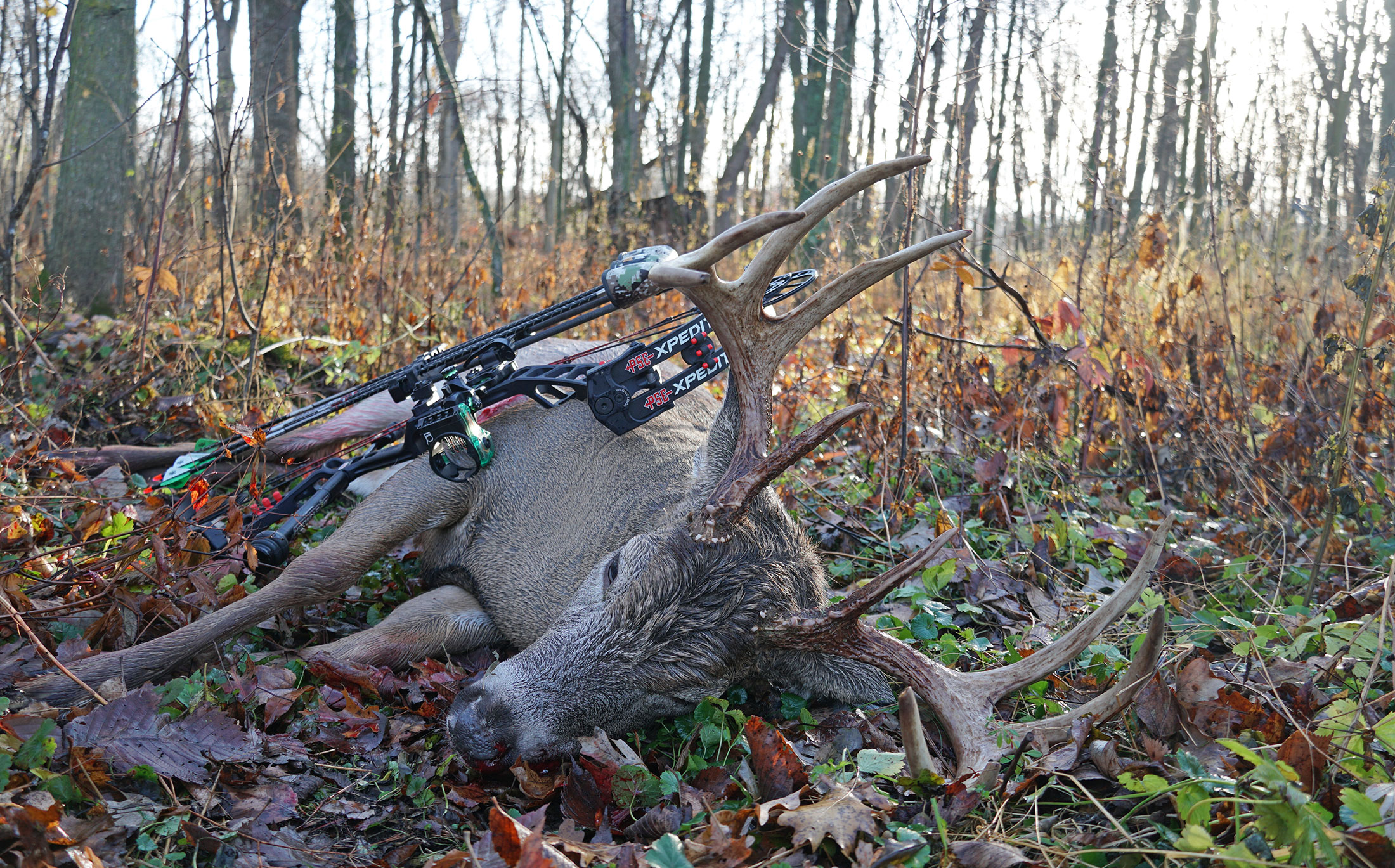
Lots of farmers like to shoot a few deer or they have kids who hunt, but this is mostly during the gun season. Fewer farmers have the time to be serious bowhunters. So you significantly increase your chances of getting permission to hunt during the bow season only.
Ask for Exclusive Access
If the landowner is open to letting you hunt, let him know that you’d like exclusive access for the season that you’re hunting. This, after all, is the real benefit of a lease—you get to hunt without bumping into other hunters. If the landowner has someone who hunts the property only occasionally, figure out when it is and then agree to not hunt at that time or work out a schedule. You want to avoid competition and the potential hassle that comes with it.
Also, let the landowner know how many stands and trail cameras you plan to put out and how often you plan to hunt. What are your hunting objectives and what’s your general plan? Are you trying to kill one big buck, a bunch of does, or just whatever comes into bow range? Sharing all these details lets the landowner know exactly what to expect.
Get Ready to be Turned Down
You’re going to get shutdown more often than not. But if you keep at it (and you’re offering a fair deal), eventually, someone will let you hunt. Don’t try too hard to talk landowners into it. No matter what you say, if a farmer doesn’t want to give you permission to hunt, you’re not going to get permission. So if your offer gets declined, just say thanks for the time and then hit the next spot.
Have Realistic Expectations
Once you finally close a deal on an affordable deer hunting lease, you should be excited, but keep it real. You’re hunting a small property that’s totally new to you. Just because a property is privately owned, does not mean that it’s loaded with monster bucks. You’ve rolled the dice, maybe it will work out the way you’ve hoped, maybe it won’t.
Remember that working farmlands get worked. Landowners drive roads, cut wood, spray weeds, and harvest crops. In other words, they’ll be out there on the property when you’re hunting. Try to coordinate with the landowner to avoid as many blown hunts as possible, but always remember that it’s their property and you don’t really have control of what happens on it. On the upside, deer are used to farming disturbances. They’ll be back eventually, and you’ll be the only one out there hunting them.

